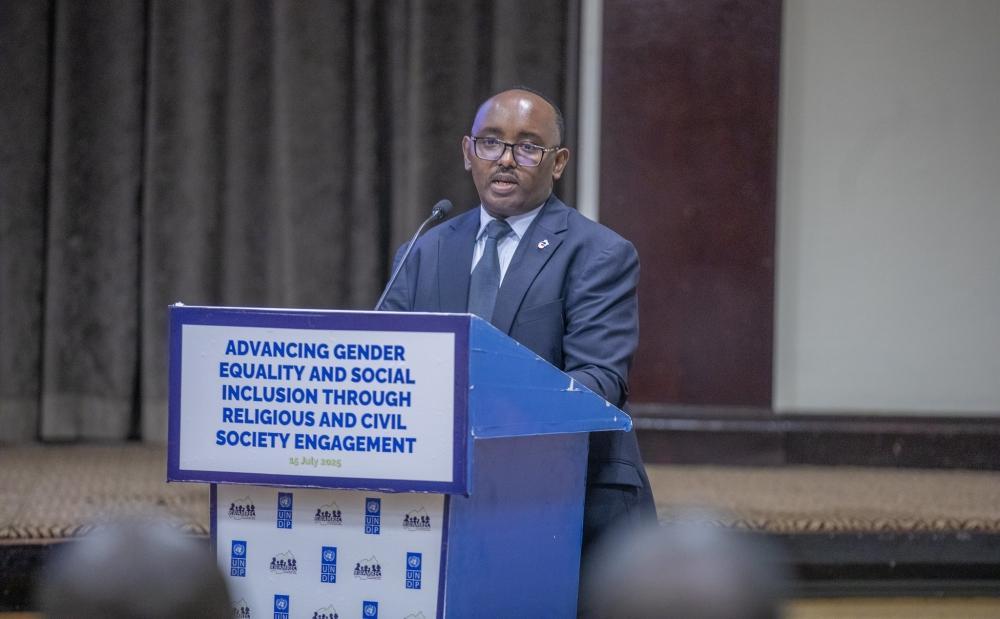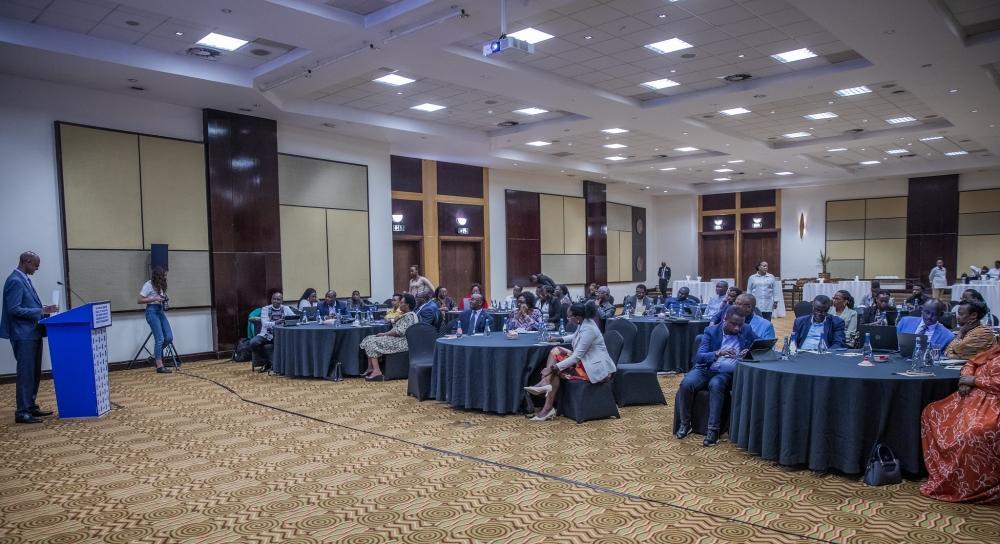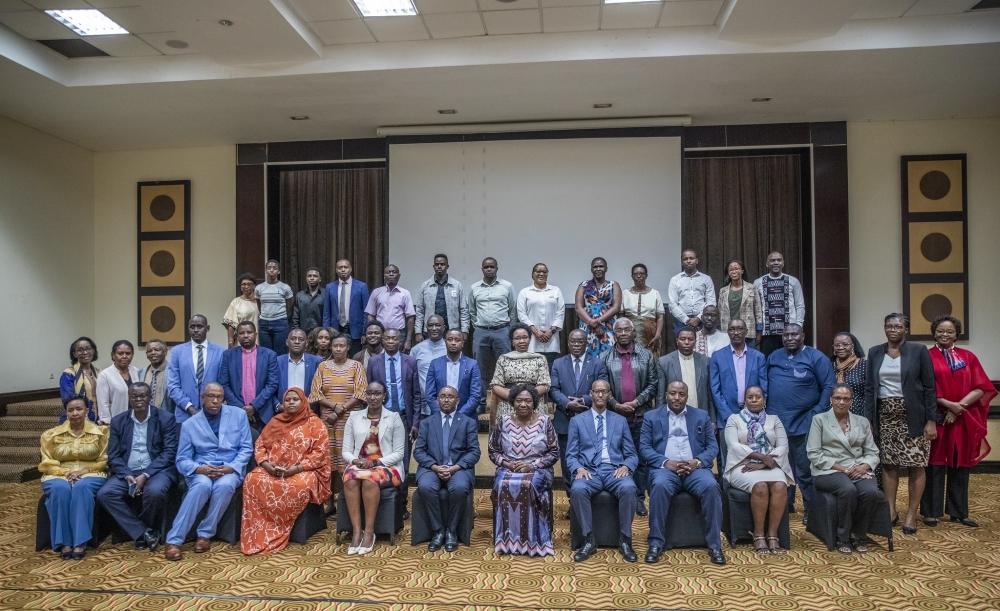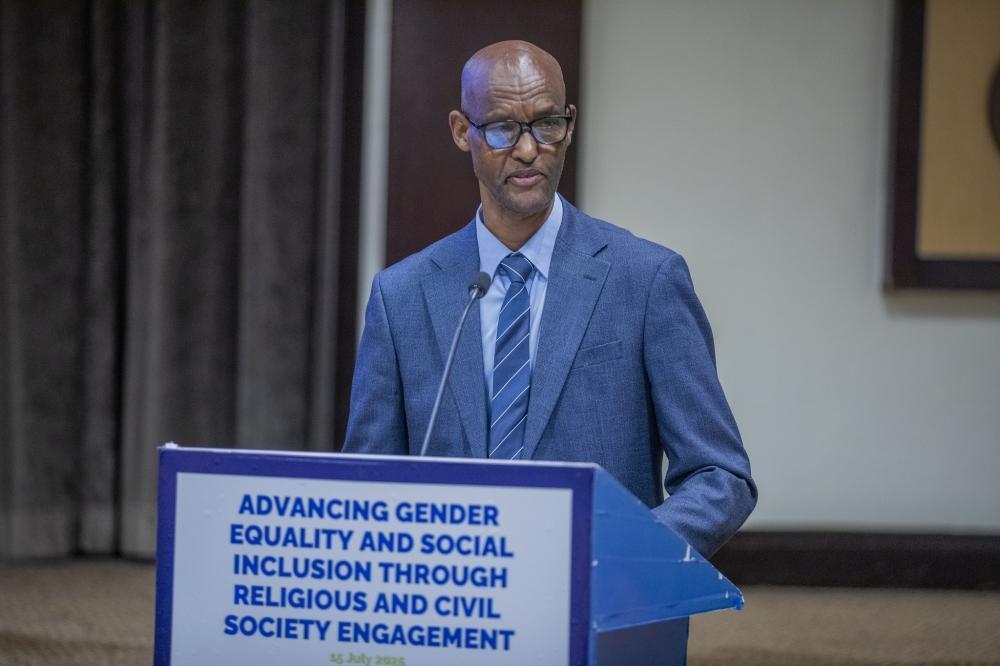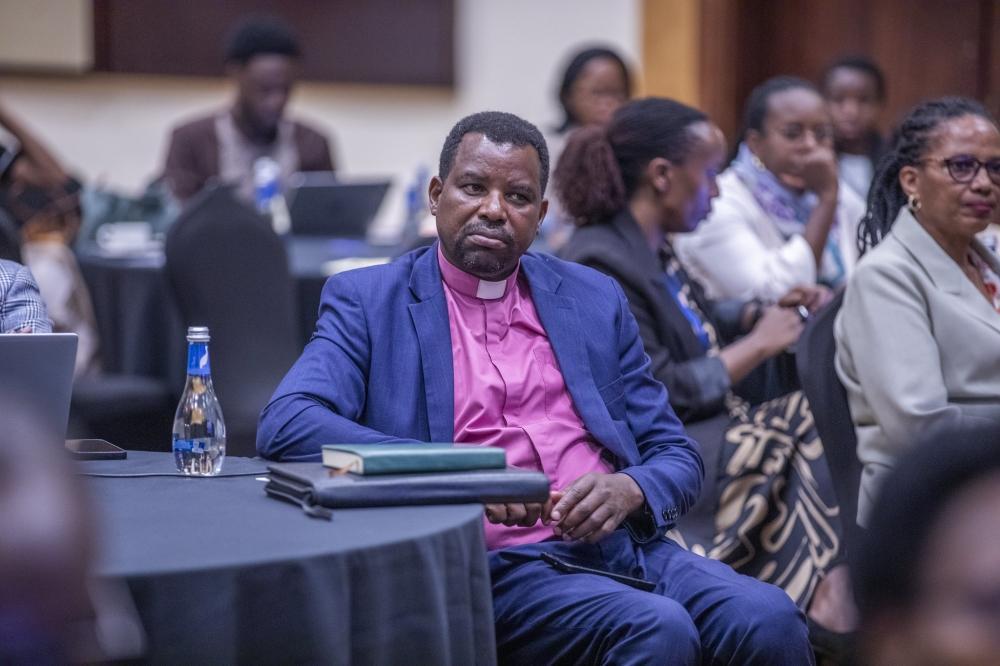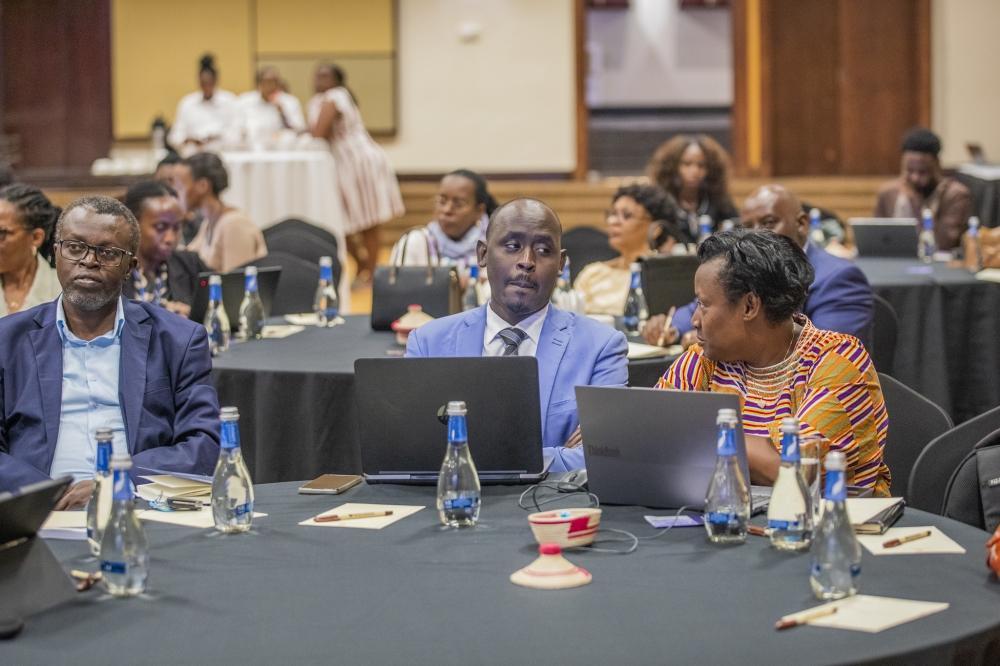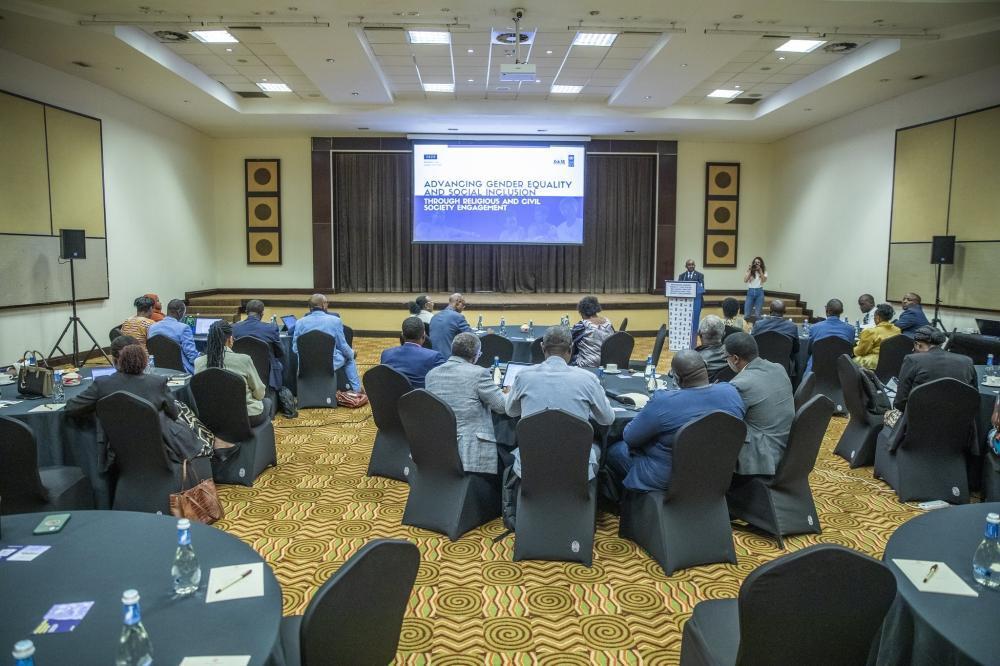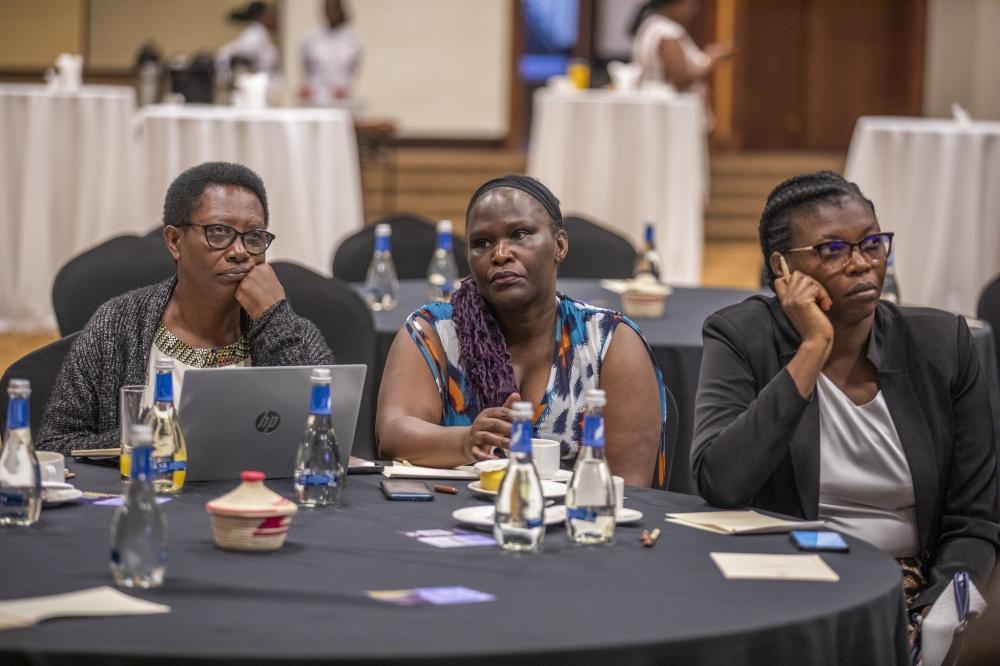Africa-Press – Rwanda. Religious leaders and faith-based organisations hold a strong influence in communities, making them partners in Rwanda’s fight against harmful cultural norms, gender inequality, and violence.
This was highlighted during a high-level dialogue convened by the Rwanda Men’s Resource Centre (RWAMREC) and the Ministry of Gender and Family Promotion on July 15 at the Kigali Serena Hotel.
The event brought together faith leaders, civil society actors, and government representatives to reflect on and strengthen the role of religious leadership in advancing gender equality and eliminating gender-based violence in Rwanda.
The event gathered faith leaders, civil society representatives, and government officials to discuss and enhance the role of religious leadership in promoting gender equality and addressing gender-based violence in
Fidele Rutayisire, founder and Executive Director of RWAMREC, said faith leaders are powerful agents of change who shape family views on gender roles and can transform lives.
He emphasised the importance of aligning faith values with human rights, noting, “Some religious teachings may reinforce gender inequality if left unexamined.”
“According to the 2019/2020 Rwanda Demographic and Health Survey, more than 49 per cent of Rwandans have experienced violence. Even more concerning, over 60 per cent of Rwandan women believe it is acceptable to be beaten, and many of those women come from religious communities. That should concern all of us.”
With over 90 per cent of Rwandans identifying with a religion, he said faith institutions have unmatched potential to reshape harmful norms. “Imagine if we used the pulpit to preach dignity, equality, and respect, we could end gender-based violence.”
The participants and officials gathered for a group photo during the dialogue in Kigali on July 15. Photos.Craish Bahizi.
He clarified that this is not about replacing faith with policy, but harmonising faith values with human rights.
Jean de Dieu Kayiranga, Programme Analyst at UNDP Rwanda, stressed that achieving gender equality and ending gender-based violence requires addressing the deep-rooted values, beliefs, and social norms that influence everyday life, beyond laws and policies.
He urged faith leaders to use their platforms to promote inclusion, protect the vulnerable, and foster mutual respect.
“The teachings of Christ emphasise love and dignity, values that align with Rwanda’s national aspirations under the revised Gender Policy. Religious leaders have a duty to interpret scripture in ways that affirm the equal worth of women and men,” Kayiranga said.
He also outlined UNDP’s work on a new policy integrating gender across all development sectors, focusing on removing barriers to women’s economic empowerment, ending gender-based violence, and promoting women’s leadership.
“We’re investing in initiatives that challenge harmful gender norms, empower local voices, and build bridges between religious, civil society, and policy actors.”
Kayiranga commended the Government of Rwanda’s strong legal framework on gender equality, particularly through the Ministry of Gender and Family Promotion and the Prime Minister’s Office.
Bernadette Munyana, the Ministry of Gender and Family Promotion representative, acknowledged Rwanda’s strong political will and supportive policies as an enabling environment for progress. However, she warned that negative cultural norms and patriarchal attitudes still hinder women’s full participation in development.
“These challenges require reforms, accountability, and mainstreaming gender across all sectors,” Munyana said. She noted the importance of engaging communities to change mind-sets, promoting positive masculinity through men’s engagement initiatives, raising awareness via education and media, and increasing women’s leadership at local levels.
“Partnerships with civil society and faith-based organisations are essential, as they play a major role in shaping positive attitudes towards gender equality,” she added.
Bishop Gahungu Bunini, a board member of RICH, a faith-based organisation, emphasised that men and women were created to complement each other and should be seen as one united entity. He identified a major challenge as the tendency of some men to dominate women in all aspects of life.
“In some cases, men prevent their wives from pursuing education or work because they don’t want them to be visible in public spaces. Some claim it’s out of jealousy, but when prolonged, this can lead to violence and denial of a woman’s rights,” he said.
Bishop Bunini called for aligning church doctrines with gender equality while respecting religious beliefs. “For example, if the Word of God in Genesis 2:18 says, ‘It is not good for the man to be alone; I will make him a helper suitable for him,’ we must understand that this message should also be reflected in our lives and culture.”
He said, “We also talked about incorporating these principles into church programme action plans, such as including gender equality in topics and promoting equal participation of men and women in church activities.”
Jean de Dieu Kayiranga, a Programme Analyst at UNDP, spoke during the dialogue at the Kigali Serena Hotel on July 15.
For More News And Analysis About Rwanda Follow Africa-Press

